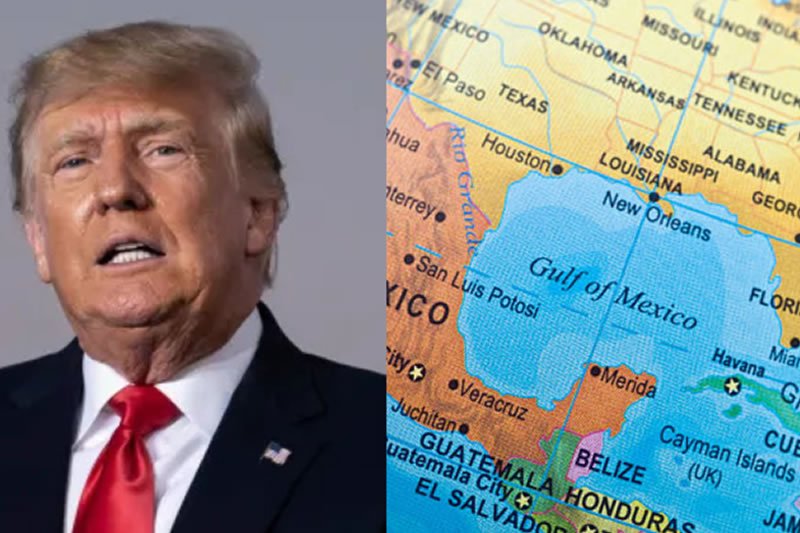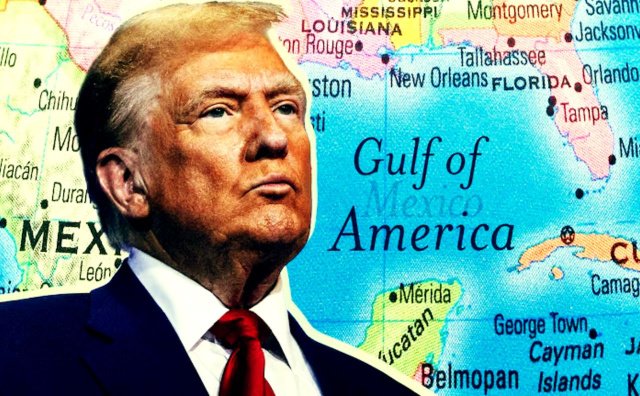News
Google Maps Renames Gulf of Mexico to ‘Gulf of America,’ Sparks Outrage
Published
11 months agoon
By
M N Ridwan
A surprising update on Google Maps has sparked outrage and heated debate, with reports circulating that the platform has changed the name of the Gulf of Mexico to the “Gulf of America.”
This unexpected modification has divided opinions, with some supporting the shift while others condemn it as politically charged and historically misguided.
The controversy erupted after reports claimed that the change followed an official declaration from former President Donald Trump.
At a recent press conference, Trump held up a signed executive order, showing a map of the newly renamed Gulf. “
For too long, we’ve had a gulf named after another country when it belongs to us—America. It’s time to reclaim what is ours,” he proclaimed, receiving applause from his supporters.
However, the move quickly met widespread backlash. Critics argue that changing geographical names through political means undermines centuries of historical and cultural recognition.
Mexican officials, including Foreign Minister Marcelo Ebrard, immediately condemned the decision, calling it “absurd” and stressing that the name “Gulf of Mexico” is firmly entrenched in global historical records and international agreements.
The controversy quickly spread across social media, where hashtags like #GulfOfAmerica and #ItWillAlwaysBeMexico began trending.
Many users ridiculed the idea, with some joking that other landmarks could soon be renamed, such as the Grand Canyon becoming “Trump Canyon.”

The satirical tone reflected the frustration felt by many who saw the change as an attempt to rewrite history for political gain.
Amid the uproar, a Google Maps spokesperson responded by neither confirming nor denying the renaming.
The spokesperson stated that Google Maps simply reflects official names recognized by international geographic bodies and governments.
However, users who checked the map were unable to find any indication of the name change, leading some to speculate that the story might be a misunderstanding or a piece of satire designed to provoke online debate.
The controversy raises important questions about the role of politics in the naming of geographical features.
While some view the renaming as a patriotic statement, others argue that it risks turning geographical names into political tools.
Without the support of the U.S. Board on Geographic Names or other authoritative bodies, it remains uncertain whether the Gulf of America will become an official term or if this incident will fade away as an example of politically motivated rhetoric.
As the debate continues, this incident highlights how even something as seemingly neutral as the names of natural landmarks can become hotly contested symbols in the struggle over national identity and political influence in the digital age.





